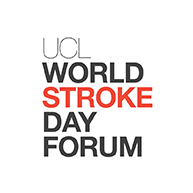Current Research
ReCAPS research project
A brief introduction and overview into the ReCAPS stroke research project, which uses non-invasive brain stimulation to ask about the difference response windows for plasticity in acute and chronic stroke. Plasticity is the brain’s ability to change and adjust to demands and what it has been exposed to.
A game-based digital intervention to rebuild number skills in aphasia
In our talk, we will describe our work exploring whether a digital intervention called ‘SWAN’ helps adults with aphasia improve their number skills. The study also tests the ways in which we carry out our therapy and the methods we use to measure change. This will increase our understanding of how to support relearning of number skills and tell us whether better test scores are matched by improved performance in daily life tasks using numbers. You can view a written version of this talk here.
Toward more effective, personalised therapies for aphasia
Despite the effort and skill devoted to aphasia rehabilitation, we still know very little about which therapies really work, and why some patients benefit more than others. In this talk, we will demonstrate the enduring benefits of ‘clinically routine’ therapy during the first month post-stroke, and show how therapy benefits might be amplified, by showing that it is possible to predict how individual patients will respond to individual therapies. You can see a written version of this talk here.
NeuroRehabilitation OnLine – the N-ROL project
N-ROL is a telerehabilitation initiative funded by an ongoing campaign run by Emilia Clarke’s SameYou charity. People with stroke and other brain injuries are spending less time in hospital receiving neurorehabilitation because of the COVID-19 pandemic. We wanted to find a way of helping our local community rehabilitation teams by offering additional online group based neurorehabilitation to people in their own homes during the lockdown period. You can see a written version of this talk here.


